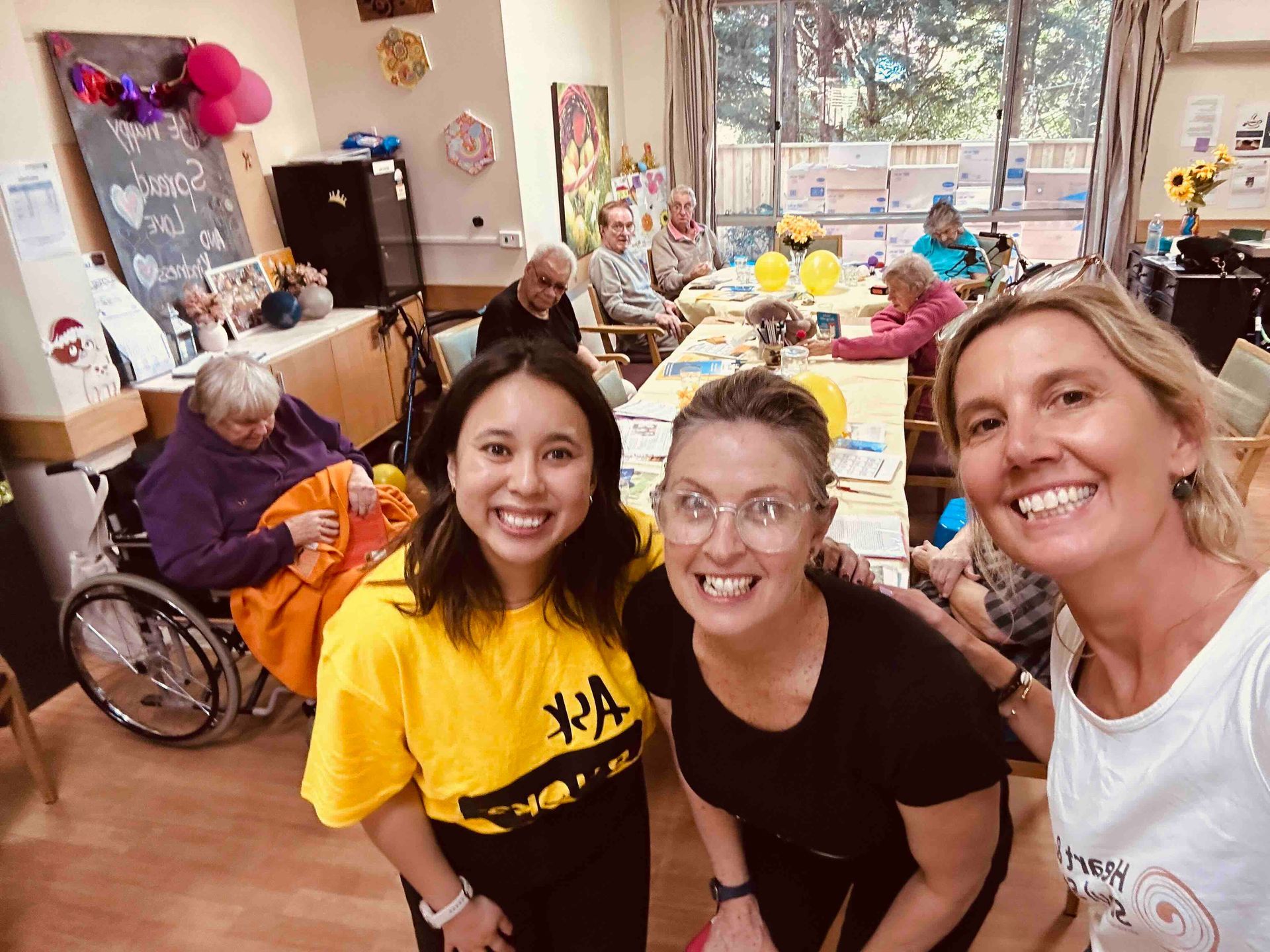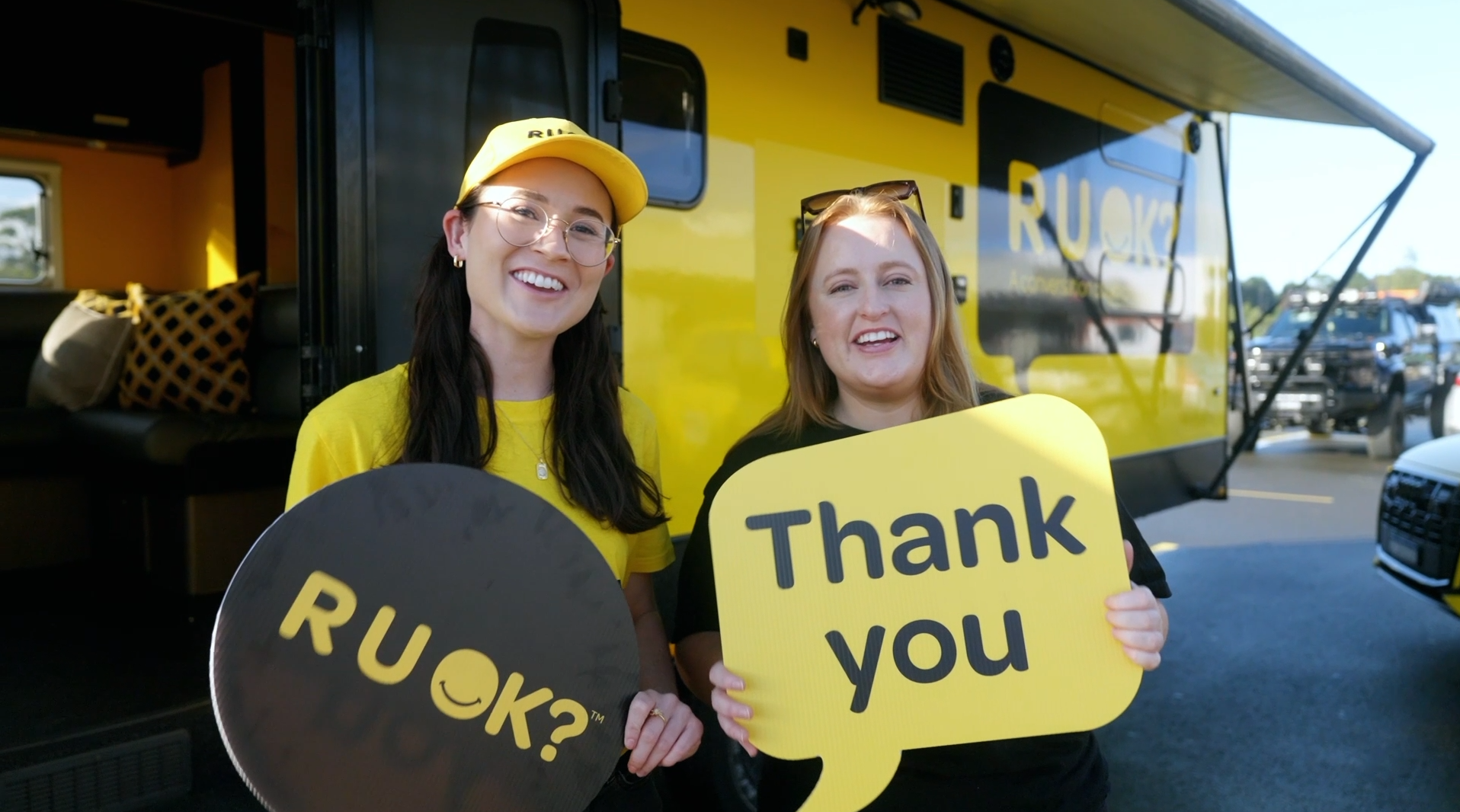Graeme Cowan on what to do if you ask a loved one or colleague if they are OK and the answer is no
So, you’ve reached out to a colleague and asked, “Are you ok?” and they’ve replied with, “No”. What now? Reaching out and being prepared to have the conversation is so important. But you also need to be prepared and now what to do and how to react when the answer is “No.”
We’ve asked mental health speaker, author and R U OK? Non-Executive Director Graeme Cowan for his tips and advice on what to do if you’ve asked the question of a loved one or colleague and they’ve said, “No, I’m not OK”.
You use a great acronym - I CARE (Identify, compassion, access experts, revitalise work, and exercise) in a lot of your work.
Q. Why is being able to identify the signs someone may be struggling such an important part of helping a friend who isn’t OK?
I think it’s extremely important for individuals to look out for behaviour changes in those around you. As a friend or colleague, we are often in the best position to see and act on changes that may occur.
The signs someone may be struggling may be subtle, but some common signs are changes in behaviour, sleep patterns, energy levels and mood. It’s also important to be wary during tough times such as divorce, sickness, or particularly stressful times at work. If you flag these moments and signs in your own mind it becomes easier to act, reach out, and provide support.
Q. Being compassionate and using the R U OK? 4 steps are a great way to show support. Is there a time you haven’t been ok and had someone reach out to you in this way?
I’ve been extremely lucky to have such a great support network and have had people reach out to me both at work and in my private life. Following a mental health setback last year – I was not in great shape, I had people close to me take notice and suggest I take action.
I also found tremendous relief in reaching out to people I felt comfortable with and telling them I wasn’t OK. Being able to speak openly and get things off your chest is a very important step to feeling better. From my own experience I’ve found that it’s much easier to open up whilst walking next to someone or doing an activity instead of sitting directly across from them.
Often, it can be quite daunting and the fear of opening up can be a big factor in why people stay quiet. My personal experiences have had very few negative reactions from people when I have told them what is going on, and it’s often commented how courageous it is for me to open up. I’ve also found that when I share my story, it gives people permission to share their’s.
Q. We have found that often people want to ask, “Are you OK?”, but hold off as they are worried the person they are speaking might say no. What are your top 5 tips for what to do when someone says they aren’t OK?
1.How you identify people:
- Are they acting differently?
More sad, moody, restless, listless, angry than normal? Lost interest or enjoyment in some of their favourite activities? Difficulty concentrating? Weight loss or gain?
- Are they isolating?
Not acting as sociably as normal?
- Tough times?
Divorce? Death of a loved one? Tragic events?
2.How you actually ask:
Put yourself in their shoes, and show support
- Ask - break the ice -
observation of changes – ask R U OK?
- Listen without judgement –
ask open ended questions – ask, “How can I help?”
- Encourage action –
suggest they see their GP, and/or call EAP (Employee Assistance Program) or a help line
- Check-in – contact them a week later to check they took action [GC1] or sooner if you are very concerned
3. Ask in the right place – the environment you ask in can impact how comfortable someone may feel when opening up to you. Walking in nature, joining them at lunch or after work, are all great things to create a moment to talk.
4. Suggest they seek expert help – If appropriate - offer to make an appointment with a suitable professional for them. If they don’t have a GP they are comfortable with, suggest they ask family and friends for recommendations .
For support over the phone they can call Lifeline 13 11 14, SANE 1800 187 263, beyondblue 1300 224 636 and more.
5. Make sure the working environment is good - being connected and fulfilled is vital. Working from home or feeling disconnected from the workplace can exacerbate feelings of isolation. If you’re concerned reach out and check in – this is particularly important if a colleague is off work as maintaining a connection to the workplace makes it easier for them to return to work.
Q. What are some things you’d advise not to do or say when asking a colleague “Are you OK?”
Do
- Let them know why you’re concerned and that you care
- Ask questions to let them guide the help seeking process
- Provide a creative solution. Present options that give them the ownership of decision making.
Don’t
- Say things like;
- “Think of all the good times”
- “I know what it feels like”
- “Snap out of it”
- “Think of all the starving children”
- Try and overwhelm them or do too much too quickly. Everybody’s help seeking process is different and it’s important to respect some people may take longer than others.
Q. Why is the R U OK? Message relevant to the workplace?
The R U OK? Message is extremely important in the workplace for a number of reasons. Recently the CSIRO released a report outlining six ‘megatrends’ that will shape workplace health and safety over the next 20 years. Rising workplace stress and mental health issues was one of the trends. New and intensifying uses of digital technologies in the workplace may exacerbate problems with mental health and stress, meaning the R U OK? message and looking out for colleagues will continue to become increasingly important.
The most successful teams often all excel in the following; provision of a caring, supportive and psychologically safe environment, which allows individuals to be themselves, and develop strong interpersonal respect. A workplace that has incorporated the R U OK? message is able to create a supportive environment in which all staff and stakeholders are able to flourish.
You can down load a free copy of Graeme’s ‘iCARE: 5 ways to help a stressed workmate’ poster from here.






















